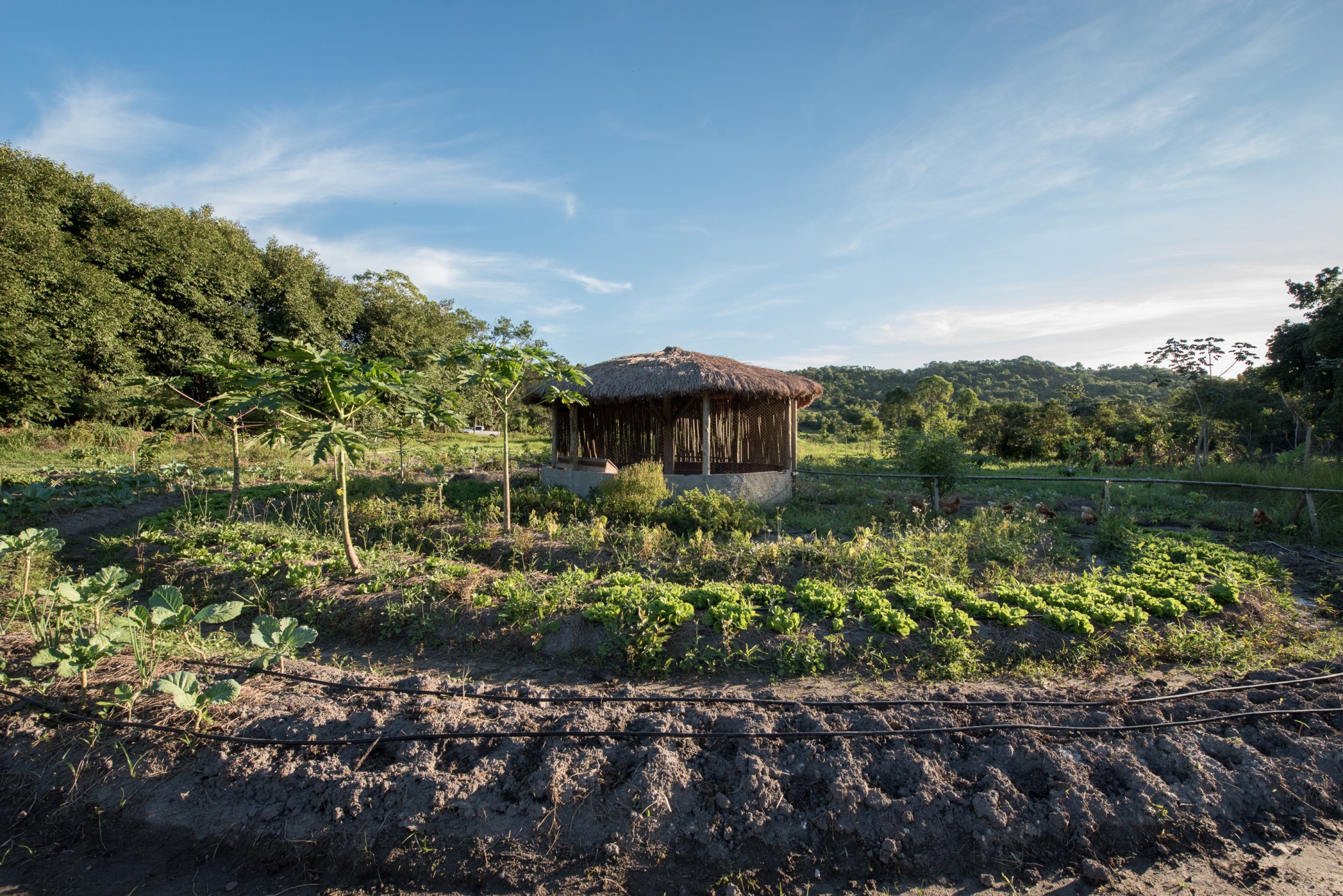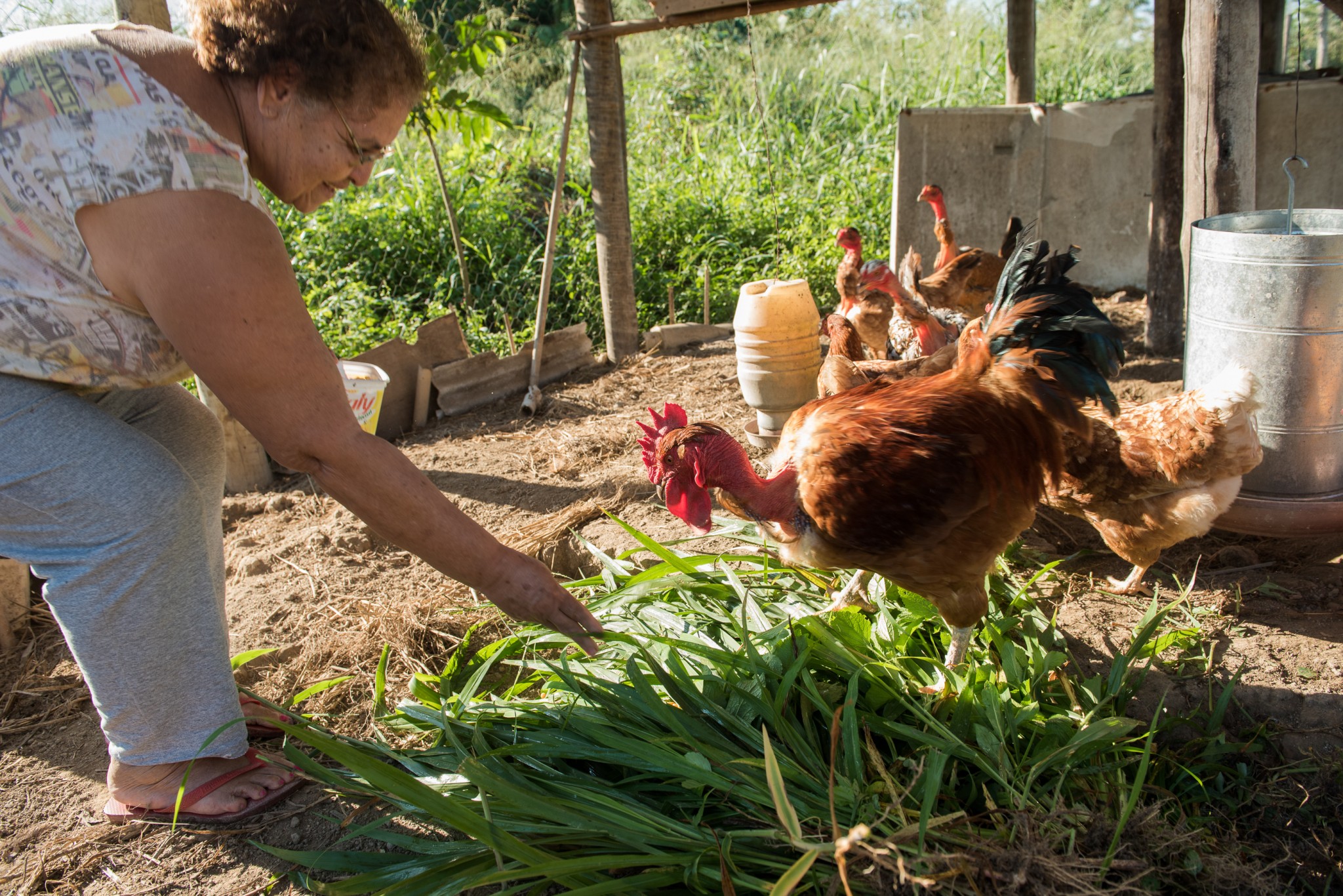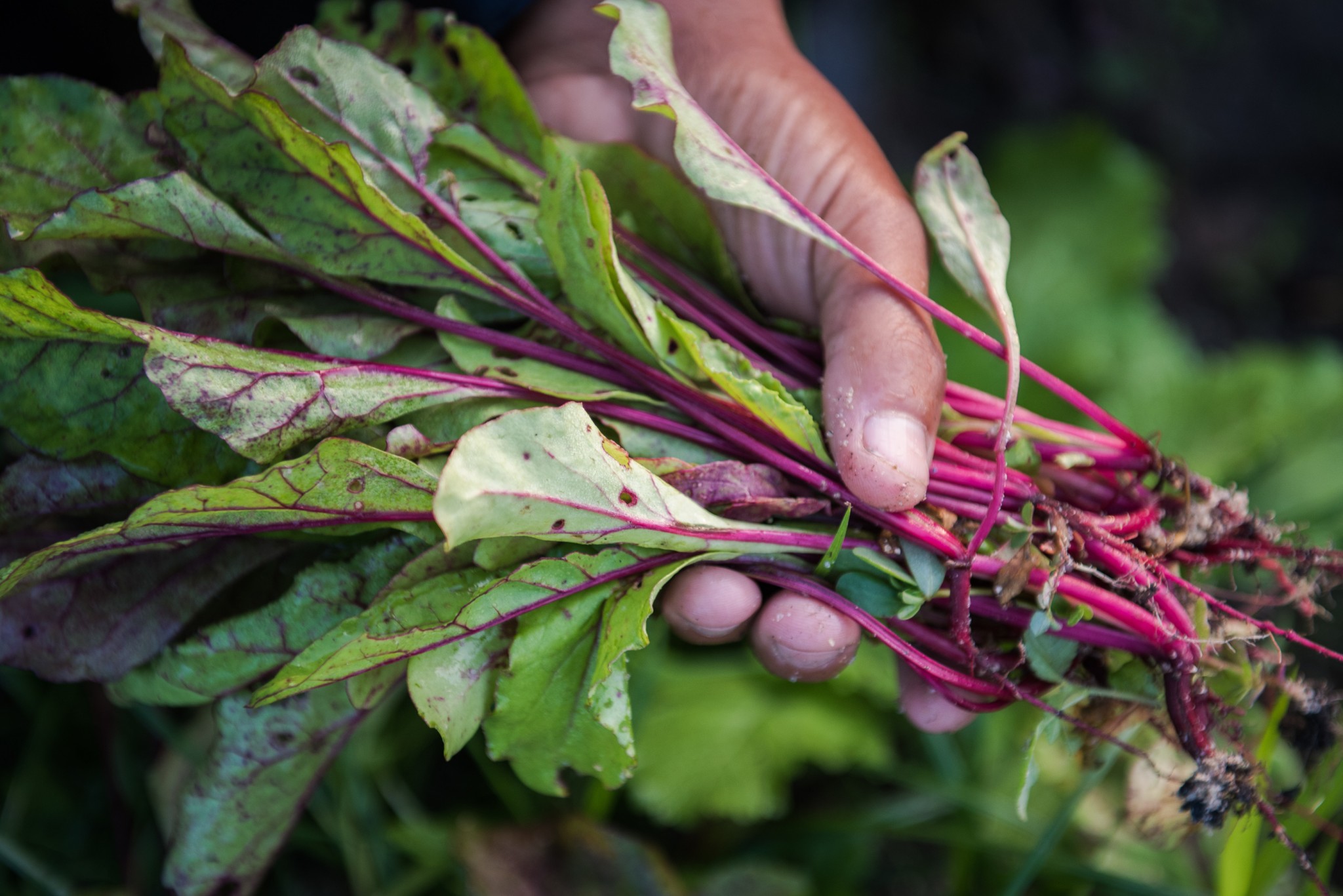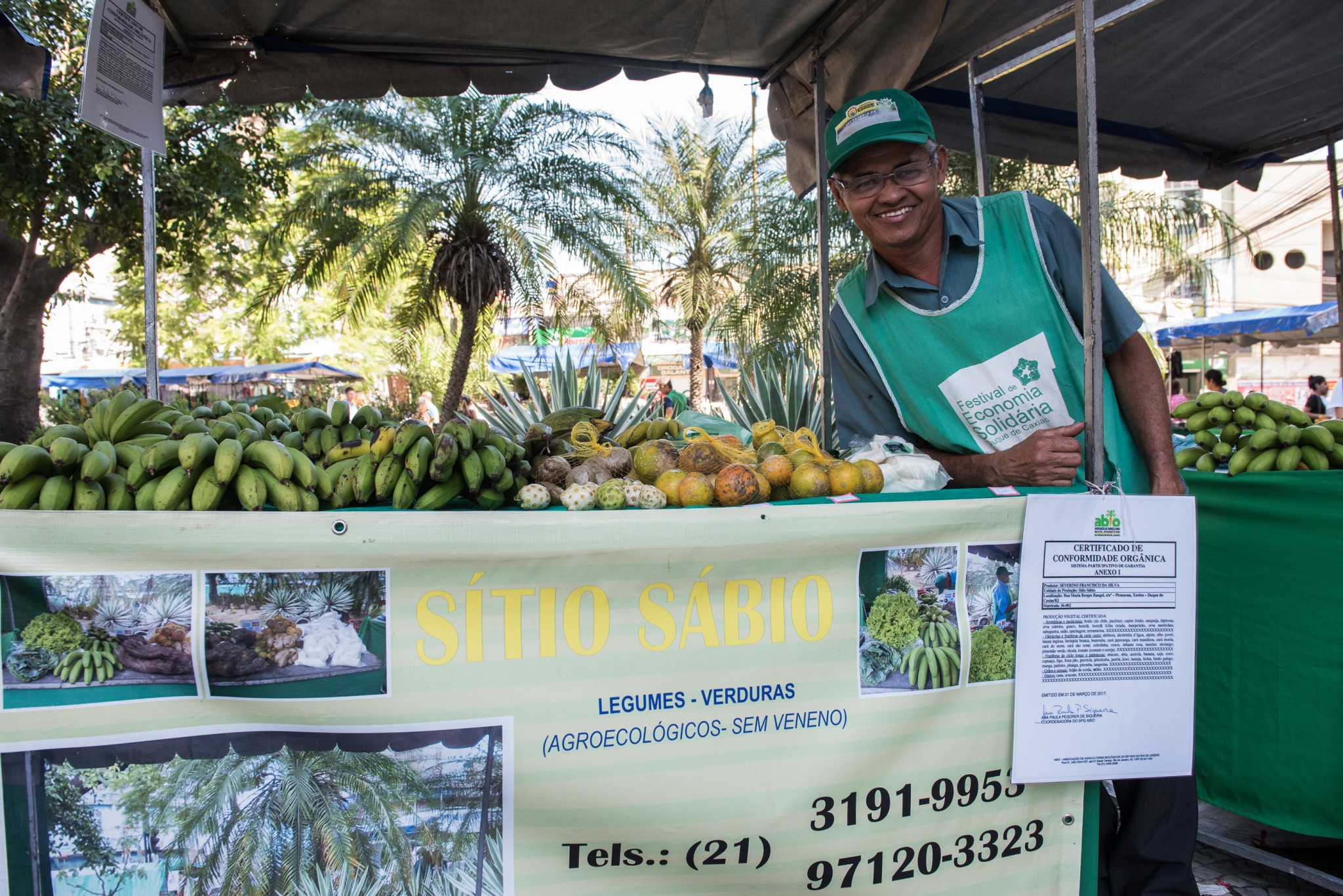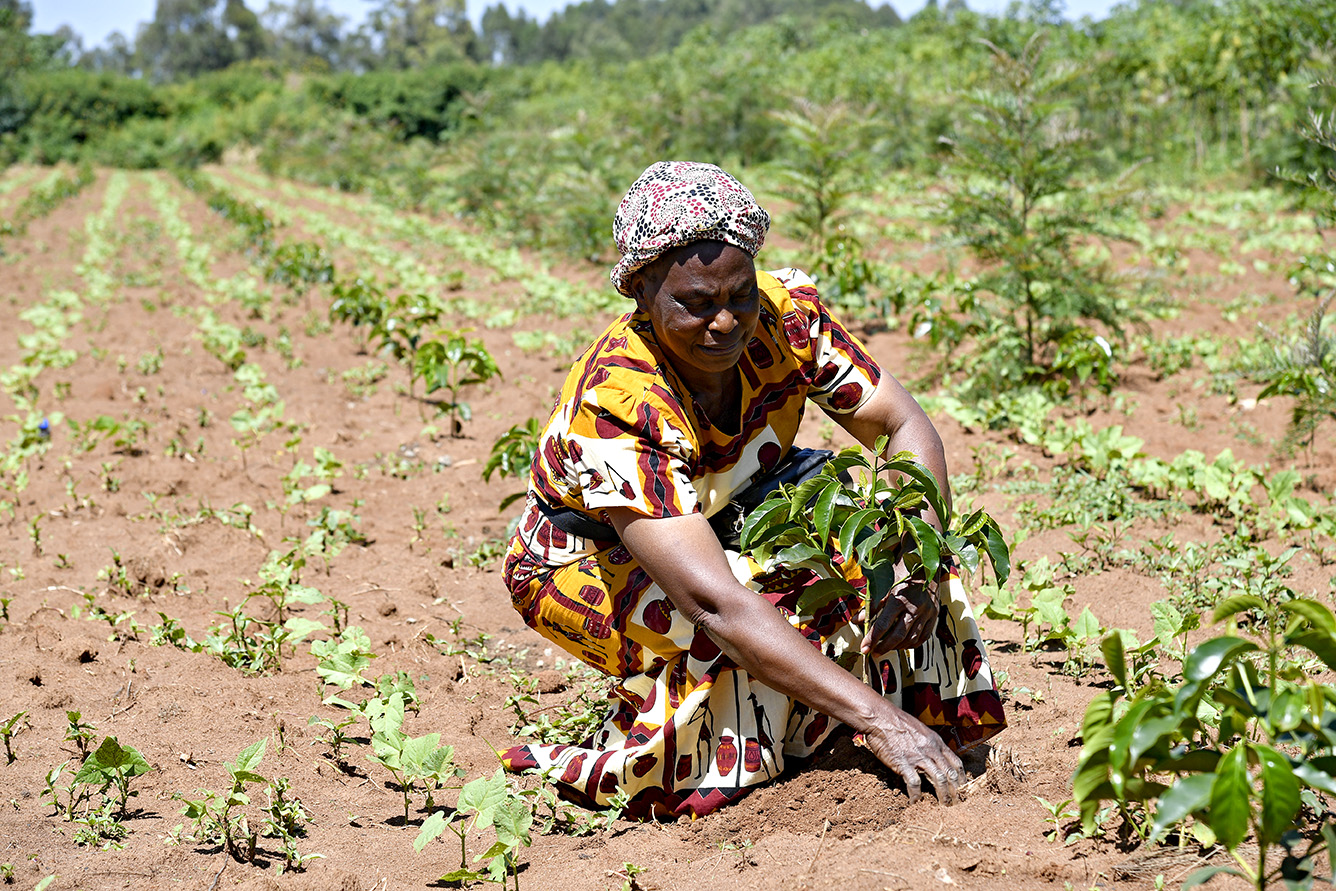Creating a large organic food production hub to preserve water resources in Rio de Janeiro
The Livelihoods Fund for Family Farming (an impact investment fund created by Danone, Mars, Veolia and Firmenich) is investing in a project in Rio de Janeiro to link water conservation with sustainable farming practices and improved revenues for farmers. The project is supported by Bonafont, a Danone brand which operates a mineral water factory in Tinguá (60 km from Rio), and the Sebrae (the Brazilian SMEs development agency). It will enable smallholder farmers located in Tinguá, one of the key water catchments of Rio, to adopt a 100% chemical-free agriculture to preserve the watershed. This will result in the creation of the biggest organic food production hub of Rio de Janeiro.
Big cities and rural landscapes need each other
Every year, Rio de Janeiro hosts the biggest carnival in the world with 2 million people per day in the streets. The show is proportional to the size of this megacity which exceeds 12 million inhabitants. In 2050, more than 65% of the world population will live in cities[1]. Yet, cities depend on their rural landscapes for food and water. At the same time, rural agriculture needs urban demand to prosper. This is a fragile balance. Sprawling urbanization threatens the biodiversity of rural areas while unsustainable farming practices alter the capacity of rural landscapes to provide essential services to cities. Farming practices have a direct impact on the soil’s ability to filter and retain water and its fertility (Learn more). How to reconcile the interests of cities with those of rural areas?
The mountain ridge of Tinguá, at around 60 km upstream from Rio de Janeiro, is one of its key water catchments. Tinguá valley spreads over a surface area of around 60 km2 of which two-thirds are protected within a natural reserve. The rest of the area once had prosperous sugar cane fields. Nowadays, farmers struggle to live off their work due to inefficient practices and access to markets. This under-valued land at the door-step of a megalopolis generates speculation. In the long-term, mass tourism, real estate programs and polluting industries could exert pressure on land management in Tinguá. The preservation of Tinguá’s water resources therefore goes along with a sustainable and profitable land use. This is the rationale behind the Livelihoods-Caruanas* project.
*In Tupi Guarani, Caruanas means the spirit of water.
The public & private sectors team up to address water conservation & poverty
To address the environmental, social and economic challenges of Tinguá, there was a need for a coalition of players with complementary interests and means, as well as a long-term financial model. The Livelihoods Fund co-designed the project and bears the investment risk by providing upfront financing for its implementation and monitoring. For Bonafont, like all Danone’s water brands, preserving water resources is instrumental for a resilient business. Bonafont will pay a fee to the fund according to the number of hectares under conservation to ensure that the project has tangible results. With this result-based mechanism, Bonafont reduces its investment risk while benefitting from Livelihoods Funds’ expertise in project development with smallholder farmers. The Sebrae will co-invest in the project and implement it in the field. With the private sector’s support, the Sebrae will be able to implement a pilot project initiated with around 15 farmers around Tinguá to increase the production of organic food while preserving natural resources.
Empowering farmers with training, equipment & market connection
The Livelihoods-Caruanas project will foster the transition of the vast majority of farms located around Bonafont’s factory to organic farming for the long-term preservation of water resources. The strength of this program lies in its ability to turn farmers with little technical know-how into professional organic farmers through a 30-month training program and efficient equipment. The project aims at empowering around 250 farmers.
Each farmer will receive an agroecology kit to start organic farming. This kit, designed by the Sebrae, has proven results as many farmers across Brazil are already using it. It leads to better work organization, water preservation and higher productivity.
Moreover, each farmer will be individually trained on pest management, composting and farm adaptation to climate change. The training is provided through concrete case studies to rapidly empower farmers. They will also attend collective courses on farm management, accounting and sales. With this complete training, they will acquire the necessary tools and expertise to sustainably manage their farms.
After one year of training, farmers will be issued an organic farming certification from a Brazilian national agency. Together, the 250 family farms of Tinguá will become the largest organic food production hub supplying Rio’s growing market for healthy food. The project has also a strong sales component to connect farmers with markets, restaurants and supermarkets of the city.
Enhanced productivity thanks to efficient farming practices and higher prices for organic products will greatly improve farmers’ lives. Their revenues are expected to rise by around 60%, matching or even outweighing a city job salary.
The project will also create a solidarity mechanism, allowing farmers who have benefited from the program to support training for others.
Mutual benefits for farmers, businesses and the planet
Thanks to its innovative investment model and its implementation at Tinguá’s landscape level, the Livelihoods-Caruanas project generates benefits for all its stakeholders: improved revenues for farmers; long-term resilience of Bonafont’s activity; healthy food and preserved water resources for the people in and around Rio. The project also strengthens Bonafont’s social impact for people living around its factory in Tinguá as they will be the first beneficiaries.
The model of the Livelihoods-Caruanas project can be deployed in other Brazilian cities or other countries to contribute to the long-term conservation of water resources of our planet.
[1] http://www.un.org/en/development/desa/news/population/world-urbanization-prospects-2014.html
Photos: Louis Perrin/ Livelihoods Funds.
Read also:
A kit to make agroecology accessible to smallholder farmers
In the Livelihoods-Caruanas project in Brazil, smallholder farmers are equipped with the agroecology kit designed by the Sebrae. This kit fosters better work organization, water preservation and higher productivity, increasing farmers’ revenues by up to 60%.
Read more
INTERVIEW
“The Livelihoods-Caruanas project is important for the continuity of our business”
Ricardo Vasques, General Director of Danone Waters Brazil explains the motivations of his company for engaging in this project combining water preservation and poverty reduction.
Read more
A new method to measure the link between farmers’ practices, productivity, water resources & carbon
30,000 smallholders in Kenya are implementing a new method to measure to what extent their farming practices have an impact the soil’s health by using carbon as a tracer.
Read more



